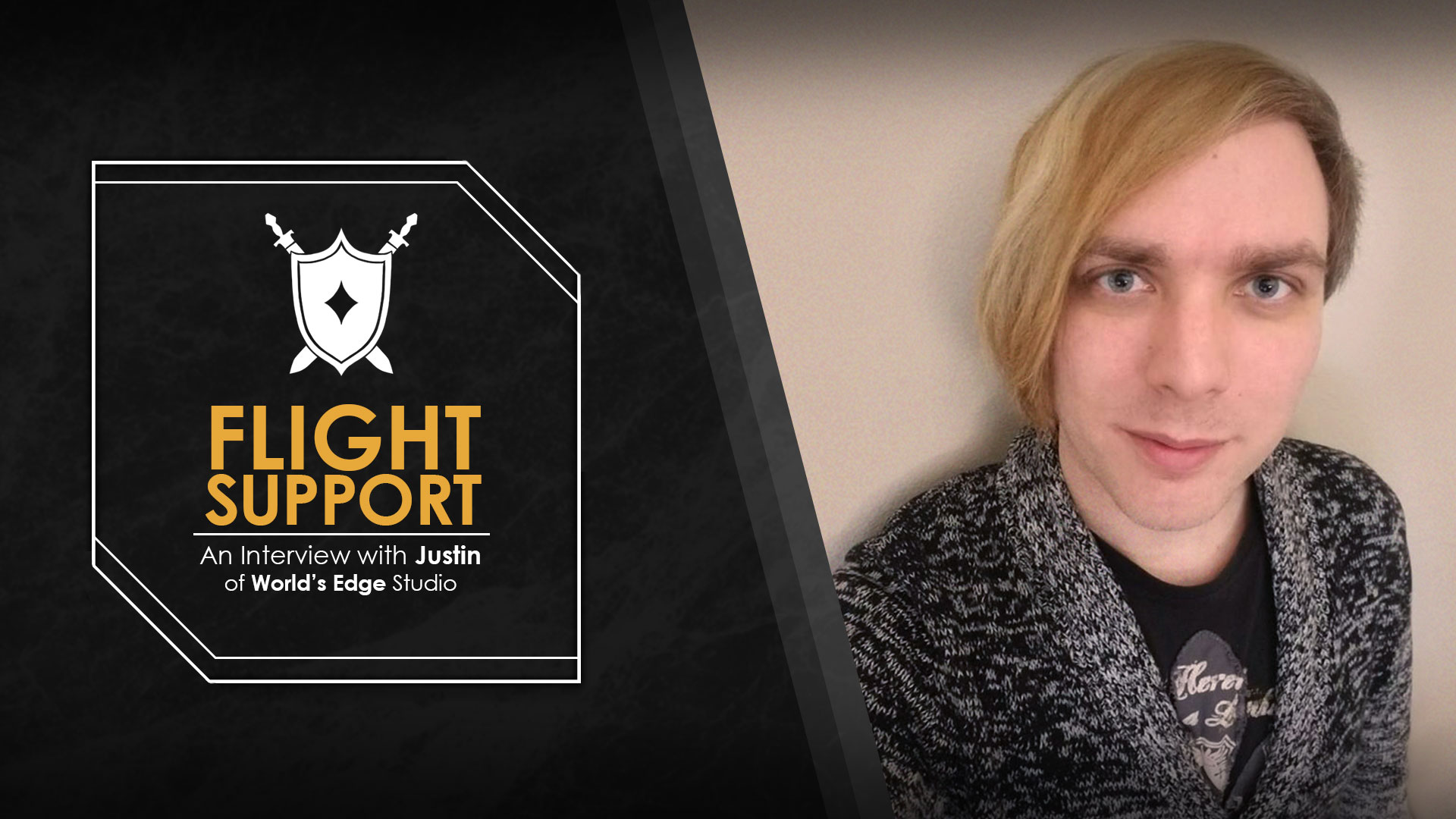
Greetings all! My name is Justin and I am the Flighting Support Coordinator at World’s Edge game studio.
Q: Could you tell us a little about what you do as the Flighting Support Coordinator?
I assist with the logistics and planning of alpha & beta testing Age games, as well as the Age Insider program. This includes coordinating things on the beta forums, planning out the logistics of player on-boarding, and managing communications between beta players and the other development teams. I also help to translate qualitative feedback into actionable items and propose ways to improve the beta experience of the Insider program overall. It is a mixture of project management and quality assurance, with a bit of technical support and customer service.
Q: How did you end up working in games?
My career path has crossed into several areas (from customer service to the performing arts), but always wanders back to align with my hobbies and interests. I’ve been in the orbit of the games industry for some time; I volunteer with a few local social gaming groups and my husband teaches computer science and game design. But my major cross-over into games came through the Pathfinder RPG, where a few years back, my volunteer work opened up a door to a job at Paizo, Inc.
Q: Where did you go to school and what did you study? How does this influence what you do?
I graduated from the University of Missouri-St. Louis (UMSL) with my masters in Andragogy, or the study of how adults learn. Understanding how adults learn, knowingly and unknowingly, is one of the most fundamental skills in any career that interacts with an audience of adults. I frequently look at any program I have a hand in and think about: How is a new user going to interact with what is before them? What are the ways they will learn to reach the end-goal? And how do we empower the user to be a self-learner? I also look for ways that we as a program can learn from our players, our community, and our past experiences.
Q: What games have influenced you the most?
I am a problem-solver type of gamer, growing up on puzzle games like Myst, SPQR, and Rama, while also enjoying strategy and fantasy through games like Magic and Legend of the Five Rings. I also really love RPG games such as Pathfinder, Dungeons & Dragons, and Kingdom of Loathing. I’ve picked-up and dropped a wide-variety of games over the years as well – I even still have some of the cards from the old Age of Empires TCG!
Q: What are your favorite memories of playing Age of Empires?
I played many of the Age of Empires games as they originally released. My parents are big into history, and they introduced me to the first Age of Empires game. I also recall being super excited about Age of Mythology, as it was an intersection of so many things I love. AoM was the first game that I ever made a pre-release purchase for, and is still my favorite in the series. My favorite singular mission, however, has still got to be the Babylonian campaign in Age 1 where you start with only a single priest and have to Wololo your way to victory!
Q: Any advice for someone looking to have a career in games and betas?
Understand that there are many paths that can lead you where you want to go. Recognize that knowledge and skills from one career can be transferable and relate to another. Know that the abilities you cultivate in your personal time are just as important as the ones you develop professionally. These apply universally; the path you take to arrive can be as unique as you are.
With regards to a career in betas, here are five tips which have helped me in my career:
- Try-out as many games as possible and participate in a variety of game betas and playtests. Expand into games with diverse topics and gameplay elements and think about them from a design standpoint. Pick-up on lingo and the basics of QA and testing. Experience makes a difference in this area, but it can be your personal experiences.
- Take time to be introspective and reflective. The more you get used to examining and communicating your own feelings, the better you will get at understanding the feelings and expressions of others. This is good for communication, and when examining raw qualitative feedback.
- Let data guide you whenever possible and acknowledge when you have a bias on a course decision. Feedback can sometimes be like a flare, indicating a good section to look for possibilities, but you shouldn’t let your personal assumptions drive the action. Being data-driven is how you arrive at a product that users want.
- Build strong communication skills. Working on betas can mean interacting with a variety of other teams and departments in addition to users and developers. Even when they all speak the same language, you will still be translating meaning and directions. Learn to be cordial, descriptive, orderly, and succinct with your communications.
- And finally, asking questions is the best way to learn. Don’t be afraid to be wrong or not know something. Not everyone will know everything, and you can learn just as much from a failure as a success.